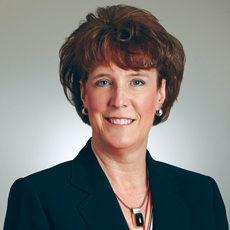
Last month I wrote about answering the question, “How are you doing NOW?” To recap, I spoke about the need for healthcare to find the secret sauce again in a psychological capacity. I believe, and the research shows, that employees are longing for and seeking workplace environments that support them, beyond a paycheck.
Support means that you understand and work to make the secret sauce of pre-2020 present and viable in your organization.
What makes up the secret sauce of psychological capacity? There are four key ingredients (domains) typically associated with having capacity.
The domains are self-efficacy, hope, optimism, and resilience.
- Self-efficacy has to do with people’s convictions about their own capacity in carrying out a set of actions. They set high goals for themselves, and welcome and thrive on challenges.
- Hope is defined as the process of thinking about one’s goal with the motivation to move towards them.
- Optimism is defined as a general expectation for future good outcomes. Generally, bad events are not permanent setbacks that can be overcome by self-effort and abilities.
- Resilience is the capacity to recover quickly from difficulties to spring back and return to the point of origin.
I once had a CEO say to me that hope is not a leadership strategy. He was a very black-and-white individual who struggled with the human side of healthcare. Hope is a leadership strategy and very much needed in today’s environment. As a leader, how do you build hope? The same way you build trust… through actions and communication.
When you have your staff meetings, think of your communication. Do you have moments of hope? Are you building a vision of the future and how your employees fit into where the organization needs to go? When individuals have hope, they can climb mountains together. Frankly, the well of hope has been drained significantly these past several years. Think about how you as a leader can fill the well up within your organization.
The second domain is self-efficacy. Self-efficacy needs to be another strategy to stabilize your workforce, and it needs to be carefully crafted. I recently met a young woman who was a certified nursing aide. When I asked what she did, she stated, I am just a CNA. I paused for a moment and asked her if she thought she contributed to the health and well-being of the residents. She answered quickly, “Of course I do.” I asked, then why did you minimize your contribution by the descriptor of “just?”
To develop self-efficacy, we need to be clear about the total value and equality of all team members. Acknowledging contributions for the value of the action fosters initiative and expands self-efficacy. Individuals will welcome more challenges, more opportunities to grow if they know that the value of their contribution is recognized and they are seen as major contributors.
The third domain is optimism. When I think about optimism, I will share that as I work across the nation, the level is low within healthcare. In asking leaders, what they are optimistic about, I am usually met with a very awkward long pause. Behavioral science has shown through research that optimism is a necessary emotion for recovery from traumatic events.
Recently, I watched a team in their morning huddle each share one thing that they were optimistic about for the day. They started focusing on optimism when they video recorded their huddle and heard how much of it was focused on what was wrong, and how horrible the shift was going to be. I smiled when one team member shared, “I am optimistic that I will be able to take my lunch break today because we have the people to make that happen.”
The fourth domain is resilience. There are hundreds if not thousands of articles about resilience. Yet it remains elusive as we work to help our workforce heal and strengthen. Here’s what I know: resiliency will not be obtained until we acknowledge the traumas of the past and present. Secondly, we as leaders need to be inspirational, to have hope and optimism but also foster those same emotions within our workforce.
I believe that acknowledging the past, staying present to the NOW, but looking ahead to the horizon is a strategy that must be deployed to address the needs of today’s workforce.
Martie L. Moore, MAOM, RN, CPHQ, is the CEO of M2WL Consulting. She has been an executive healthcare leader for more than 20 years. She has served on advisory boards for the National Pressure Injury Advisory Panel and the American Nurses Association, and she currently serves on the Dean’s Advisory Board at the University of Central Florida College of Nursing and Sigma, International Honor Society for Nursing. She was honored by Saint Martin’s University with an honorary doctorate degree for her service and accomplishments in advancing healthcare.
The opinions expressed in McKnight’s Long-Term Care News guest submissions are the author’s and are not necessarily those of McKnight’s Long-Term Care News or its editors.




